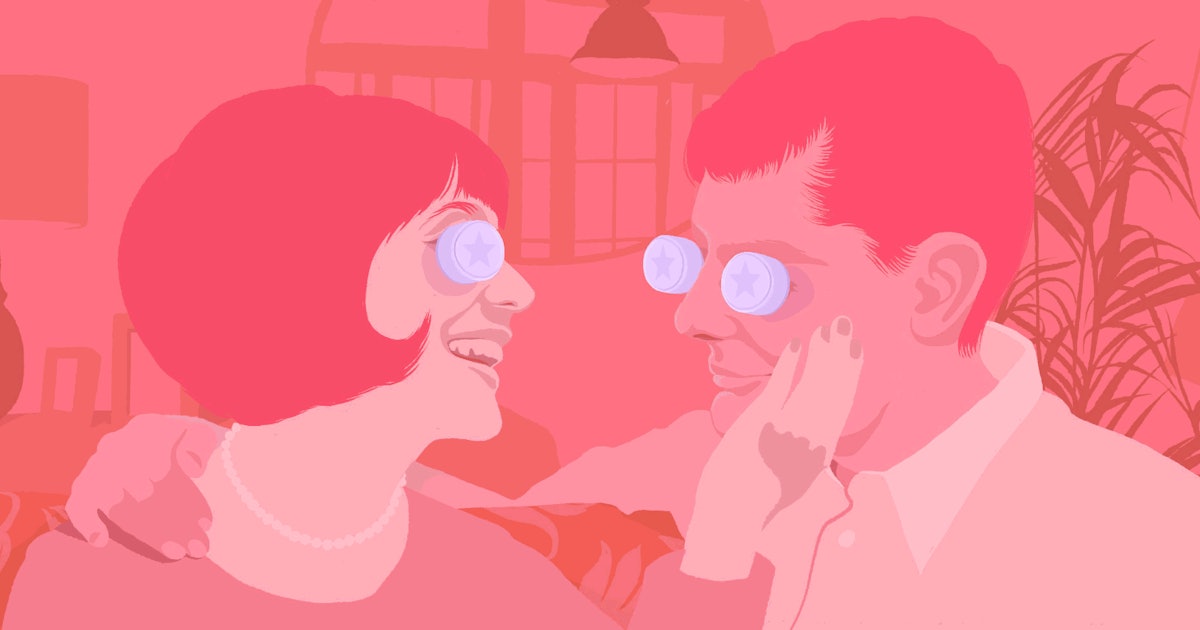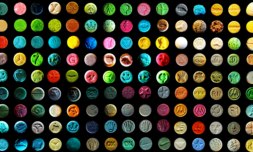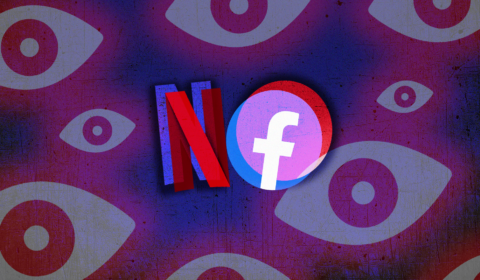An Oxford University academic has suggested that a new substance to help failing relationships could become commercially available in the next three to five years.
Imagine a world where, rather than working on our relationships the old-fashioned way, we just pop a pill and the spark is reignited (at least until it wears off and we need another fix).
Though this may sound like something straight out of Harry Potter, it could soon be a reality thanks to academics at Oxford University.
In fact, according to evolutionary anthropologist Dr Anna Machin who led the study, these new substances could be prescribed to struggling couples within as little as three years.
‘There is now enough known about brain chemistry that certain chemicals could be prescribed to enhance your abilities to find love or to increase the possibility that you will stay in love when it’s getting a bit tricky,’ she said at the Cheltenham Science Festival. ‘They’re certainly on the horizon.’
Colloquially referred to as ‘love drugs,’ these ethically-dubious compounds have been designed to stimulate producing the cocktail of potent molecules which flood our brains when we fall head-over-heels for someone, changing our thoughts, behaviours, and emotions.


First, there’s oxytocin, the ‘cuddle’ hormone that reduces our inhibitions, followed by dopamine, the ‘reward’ hormone that makes us feel good, then serotonin, which makes us obsess over another person, and last but not least beta-endorphin, an opiate that makes us feel literally addicted to an individual.
All of which are being researched in the context of helping those who’ve hit a wall in their relationship without quite being ready to give up on their partner.
Not only this, but eventually it’s predicted that love drugs will be administered to anyone lacking confidence when dating. Think: sipping on a potion d’amour to alleviate the post-flirting jitters.
Love drugs aren’t, however, entirely revolutionary.
For decades, substances targeting the ick-riddled among us have technically already been available and those in favour of them have been tirelessly contending that it’s time to switch up our attitudes and explore the possibilities offered by breakthroughs in biomedicine and neuroscience.
Specifically MDMA which, despite being illegal, is increasingly being used alongside professionally guided therapy to treat couples seeking to induce feelings of closeness, warmth, and trust.
What is new are the signs they may hit the shelves by 2025, a notion that has many concerned about the questionable morals of medically prescribing romance.





















